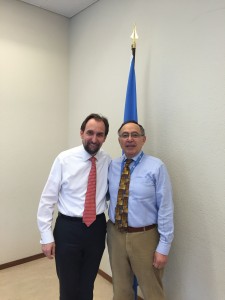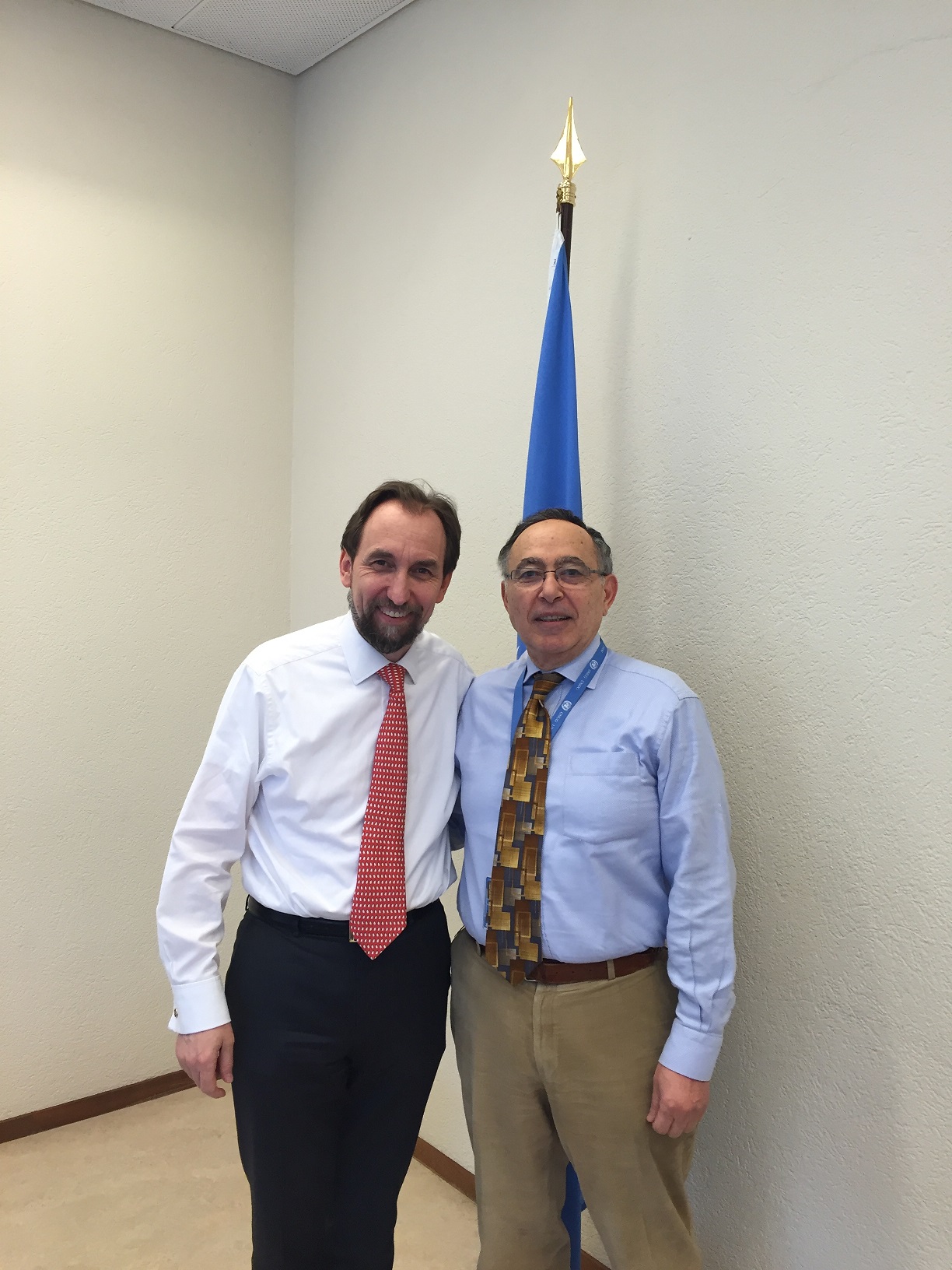 Bahey eldin Hassan, the director of the Cairo Institute for Human Rights Studies, met on Friday, March 4, with Zeid Bin Ra’ad, the UN High Commissioner for Human Rights, at the UN headquarters in Geneva.
Bahey eldin Hassan, the director of the Cairo Institute for Human Rights Studies, met on Friday, March 4, with Zeid Bin Ra’ad, the UN High Commissioner for Human Rights, at the UN headquarters in Geneva.
During the meeting, the two discussed the status of human rights in the Arab world, with a special focus on Libya, Yemen, Bahrain, Syria, and Egypt. Ra’ad explained the nature of the challenges facing the Office of the High Commissioner (OHCHR) and how the office operates to advance human rights.
Hassan lauded the OHCHR report and recent statement on Libya, which adopted a set of recommendations key to improving the situation in Libya, which languished for nearly a half century under bloody autocratic rule before being given over to religious extremism, violence, tribal divisions, and terrorism. Hassan said that Ra’ad’s statement reflected the CIHRS’s own recommendations to address the situation in Libya.
Addressing human rights in Egypt, Hassan said the situation had declined to depths unprecedented in Egypt’s modern history, with human rights crimes perpetrated similar to those seen in Latin America in the 1970s. No one professional, cultural, or political group—Islamist or secular—has emerged unscathed by these policies.
Hassan also suggested that a vicious war is being waged on several fronts—not against terrorism, but against human rights organizations—in which the judiciary is being exploited to achieve direct security aims. Most recently, the Nadeem Center for the Rehabilitation of Victims of Violence and Torture was ordered to shut down and fabricated charges were brought against well-known rights lawyer Negad Borai, to punish him for drafting a law to criminalize torture in Egypt, in conjunction with several distinguished independent legal experts and judges, and sending the proposed law to President Abd al-Fattah al-Sisi.
On the same day Hassan also met Michel Forst, the UN special rapporteur on the situation of human rights defenders. The two discussed the daily attacks on defenders in Egypt, which has included death threats, fabricated charges, imprisonment, the closure of organizations, travel bans, and security harassment, as well as character assassination and media smear campaigns.
The meeting also addressed recent death threats against several prominent human rights defenders in the West Bank, Palestine, as well as the ongoing crisis between the government and human rights organizations in Morocco.
Share this Post

